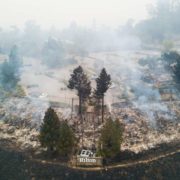“How to Write About Trauma”. That is the title of the NYT Op-Ed piece dated 08/15/16, penned by Said Sayrafiezadeh, an American-born, Iranian-cultural-inheriting memoirist and fiction writer. I read it with serious curiosity for several reasons. First, I’ve recently begun conducting an Expressive Writing course and specialized coaching practice on the same topic. Having said that, the focus of my efforts is far more about writing out the emotion of a traumatic experience for the personal self than for publication, although that certainly can follow if and when one is ready.
In Said’s piece, he presents two compelling components of trauma. The first is his non-discussion with anyone for years about being raped by a neighbor at age 4 or 5, (including his mother who evidently knew about it.) Second, the implied sense of alienation – dislocation – as a consequence of trauma is profound in my observations of trauma survivors, including my own.
The irony of Said’s traumatic revelations, of him being an Iranian is not lost on me. My identification with that culture remains to this day. As a recovering Midwestern white woman who was once married to an Iranian, who, by the way, was arrested as a political prisoner in 1976 or 1977 (I too am confused about the year!) with me right behind him in Tehran–I have ALWAYS had trouble discussing how traumatic that event was to my life, how alienating, how instantly separating the experience was for me from others. For a profound sense of separation, of alienation becomes an instant pivoting quality in one’s psyche; it is a defining characteristic of trauma. Like the long, run-on sentence above, it swamps you, flooding every nook and interior cranny.
Another defining characteristic is DO NOT TELL; that’s what I hear from Said. Even when and if you do tell, it becomes, by necessity, a rarefied version of the actual event. And by that I mean, it becomes the linear depiction of the storyline but minus describing the actual terror of what you feel while the event is happening. After all, how does one give language to the pitch and volume of a fear so great, that at the time you think it’s psychologically unsurvivable. When you write out the story, by necessity, there is an element of ‘lost of translation’ about it emotionally. It is quite simply, a subjective, experiential disconnection from others. Or so at least it seems.
Said goes on in his piece to discuss his having a dislocated thumb as an adult, which becomes a metaphor to connect a deeper element – the dislocation of himself from others as well as from his interior. Oddly, he links this to having read one of his student’s trauma essays that bored him. (Keep in mind, his assignments seem to be in the context of a general writing course as opposed to a specific trauma-writing course, which I believe would make significant difference.)
I submit that writing about a traumatic experience, to plumb the depths of it, has to be first and only for yourself, with NO OTHER AUDIENCE IN MIND. To have another audience in the beginning, by necessity, limits the emotional truth-telling. Trauma-writing’s purpose is to reconnect an essential part of a person’s core to that part that has been cut off in order to survive; that is what’s required to thread one’s way back, to reconstruct the self again. To write that initial story, the gristle and bone of the thing, with any other audience in mind is to edit your own awareness, to limit how one really felt during and after the traumatic experience occurred.
I have had the good fortune to learn of Dr. James Pennebaker’s decades-long research on Expressive Writing, and his subsequent simple exercises that break down the myth of writing for another. (See Expressive Writing: Words that Heal by James Pennebaker and John Evans.) It has been helpful to me personally, and certainly to others. I use many of the exercises in the class I am teaching now. But it really wasn’t until doing them myself, did I come to understand the depths of my own sense of dislocation. Oh sure, at some point early on, I told people about my husband being arrested; I told them how difficult it was being stuck 10,000 miles away with no recourse to contact anyone while the event was occurring. I was acutely aware of feeling very alienated – even angry about it – immediately after and for many years that followed. I could even name it; alienation! Yet in the naming, the feeling remained confining, and me along with it. The traumatic description contained the facts of the event, the storytelling part. But describe the emotional depths of it? To understand the cut-off-ness from what I had previously perceived of as “me”, the dislocation from my sense of self? I was not yet aware, let alone able to language it out, to feel it out for myself.
At times like these, I think of other trauma survivors and their inability to tell the whole truth. Telling the linear facts is a start, but only that. Plumbing the depths, mining yourself beyond the vein the occurrence resides in, but also of how violently your being was shattered and how, by necessity, you HAD to create a patchwork and limited reconstruction immediately and, for some, ever after, to survive without going crazy. Individuals who have survived wars, torture and sustained trauma, often have a harder time of it, not because they don’t recognize intellectually others haven’t gone through similar experiences as well – a reason for less alienation one would think – but because that dislocation from their very core is much harder to come to identify, come to terms with, let alone, revisit emotionally.
After all is said and done, shielding ourselves from the interior wound has to be examined and re-felt before we can become healed. As is true for most things in life, that typically takes time, and often lots of it. But writing out the story, the facts, whether boring or not, is a beginning, Writing out the reality of one’s emotional and psychological interior is an additional step that, with effort and intention, can become the hallmark of recovery.
For Said Sayrafiezadeh opinion piece, see:
http://www.nytimes.com/2016/08/14/opinion/sunday/how-to-write-about-trauma.html?_r=0







Thank you Rosalie. Every time I read one of your articles I learn a little more about you and I’ve known you all your life.